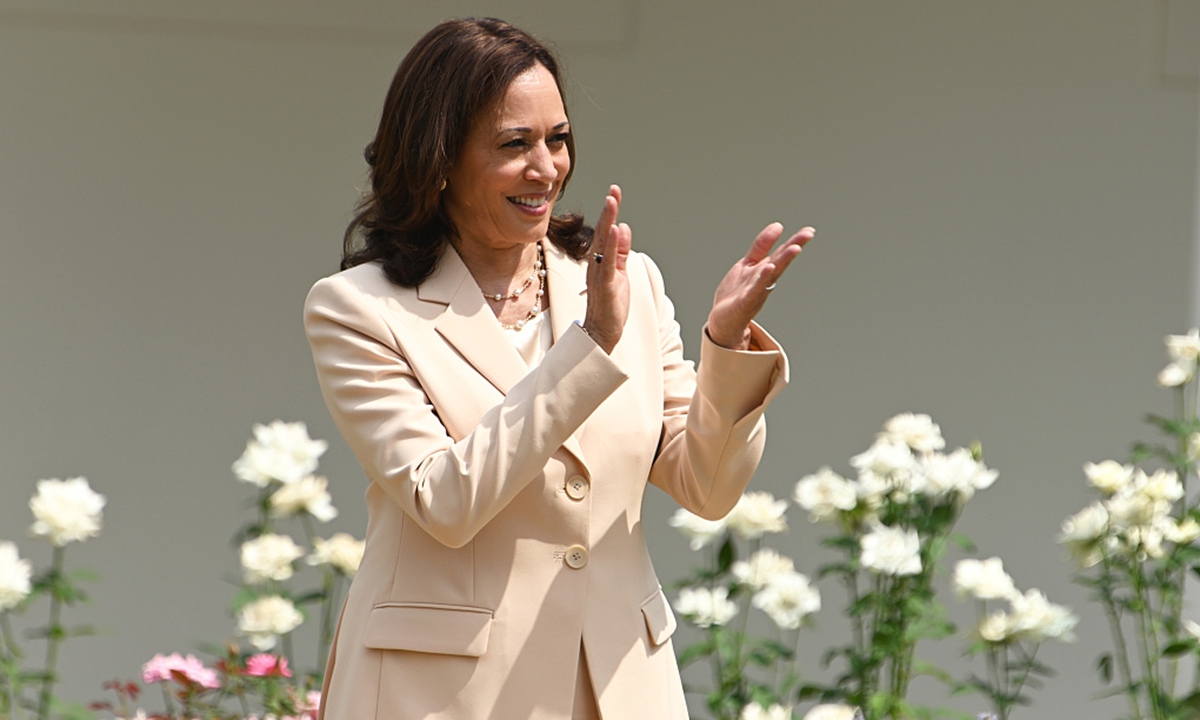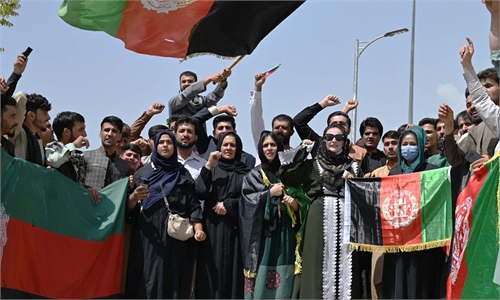US vice president will be widely questioned during Southeast Asia trip: Global Times editorial

US Vice President Kamala Harris Photo: CFP
US Vice President Kamala Harris touched down in Singapore on Sunday for a visit, ahead of embarking on a trip to Vietnam on Tuesday. The US has made Southeast Asia the focal area in its competition with China. And Singapore and Vietnam have become the key targets that the US expects to cozy up to. Last month, US Secretary of Defense Lloyd Austin just wrapped up a visit to Singapore, Vietnam and the Philippines. In the blink of an eye, Harris is arriving in Singapore and Vietnam, showing the obvious US calculations to the world.
The agenda of Harris' trip includes the pandemic, climate and of course regional security, with an attempt to urge Singapore and Vietnam to clash with China. But she is unlucky. The US escape-style withdrawal from Afghanistan has severely impacted Washington's international reputation. Her arrival in Southeast Asia provides a chance for local people to ask her face-to-face: Is the US still reliable? No matter where she goes, she will be viewed with suspicion. Bracing herself to shamelessly defend the argument that the US is still trustworthy will be her top priority during the trip.
Yet this is a mission impossible for Harris. Her visit to Vietnam will reinforce people's memories of the hurry-scurry US withdrawal from Saigon in 1975 and the association that it is not the first time that the US military abandoned its allies and that the US is a habitual offender in this regard. Both Singapore and Vietnam are members of the Trans-Pacific Partnership, which was signed up to by the previous US Democratic administration. But the agreement was later abandoned by Washington.
Even without Afghanistan, Singapore, Vietnam, the Philippines and other countries are certainly less confident to lean toward the US than they were when the Obama administration was engaging in the rebalance to the Asia-Pacific region. These countries are quietly moving toward a diplomacy of a more balanced relationship between the US and China. It is a result of the change of power and influence of China and the US in the region. Neither Austin nor Harris' rhetoric can make a difference.
No major power will accept its neighboring countries forging alliances with other major powers and play the role of the latter's tool to contain itself. It is believed that Southeast Asian countries are well aware of this truth. As China grows stronger, their behavior will more and more accord with the principle. This is not because China is overbearing, but because of the basic logic of international relations.
China and countries including Vietnam have maritime territorial disputes. Those countries want to utilize the power of the US to increase their bargaining chips when facing China. To some extent, such a situation is hard to avoid. But they need to be very careful when doing so. If they go too far, they will fall into the US trap, bringing a strategic backlash upon themselves, especially when China is making great efforts to advocate South China Sea claimant countries to resolve their disputes through negotiation, when managing disputes have already become a regional consensus, and when constant progress has been made on the Code of Conduct in the South China Sea. It is believed they have got savvy on the matter.
The US should drop the illusion to make any Southeast Asian country an enemy of China. The more tense Beijing-Washington ties get, the more sensitive countries such as Singapore, Vietnam and the Philippines will become. In the end, regional countries will keep an obvious distance with the US. China is the largest trading partner of almost all countries in Southeast Asia. No country is so stupid to turn the huge benefit into tension with China and a role as US cannon fodder.
As China becomes stronger, ties between China and Southeast Asian countries will become closer and closer. This is an unstoppable trend. Any US presence in the region will have to conform with this trend, or at least not resist the trend in order to avoid an overly embarrassing scenario. Otherwise, the US will only become an annoying spoiler.
Therefore, when Harris comes to Singapore and Vietnam this time, she needs to explore how to rectify the role of the US in Southeast Asia. Only with humility can she avoid doing or saying stupid things. We hope Harris can view China objectively from the perspective of Southeast Asia, rather than the No.1 strategic competitor of the US.



